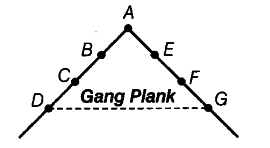Explain the following principles of Fayol with the help of one example for each.
(i) Discipline (ii) Unity of Command
(iii) Scalar Chain (iv) Stability of Tenure of Personnel
(i) Discipline
It is the sincerity and obedience towards organisational rules and regulations, as these are necessary for the smooth functioning of an organisation. According to Fayol, good superiors at all levels, fair agreements and judicious application of penalties are helpful in maintaining discipline.
It means obedience on the part of workers as well as managers.
(ii) Unity of Command : The principle of unity of command states that each participant in a formal organisation should receive orders and is answerable to only one superior.
If in any case, employee gets orders from two superiors at the same time, the principle of unity of command is violated and it will result in confusion and chaos. It can be avoided if there is proper coordination between different departments.
(iii) Scalar Chain
According to Fayol, scalar chain refers to the chain of authority and communication that runs from top to bottom and should be followed by managers and their subordinates.

The above figure illustrates the scalar chain. If D and G wants to communicate, the message should usually move up through C, B, A, E, F and then G. Communication through this process takes time.
That’s why, Fayol suggested the concept of gang plank, which permits the direct communication between D and G in case of emergency.
Gang plank refers to an arrangement in which two managers working at the same level can communicate with each other directly for quick communication.
(iv) According to Fayol, employee turnover should be minimized to maintain organisational efficiency. Therefore, suppose an individual gets selected for a post, then he should be given appropriate time to prove his-abilities.
We can say, he should be kept at the post for a minimum fixed tenure. This ensures stability and thus, he can get proper time to explore his skills.